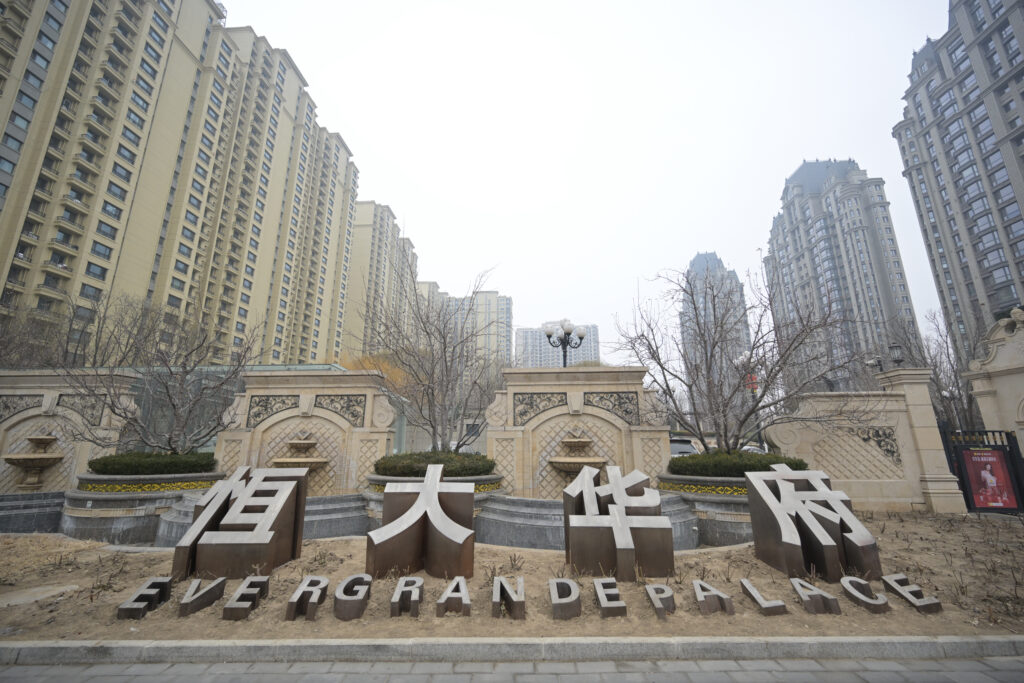When traders kicked off another week of action at the Hong Kong Stock Exchange, data on the shares of one previously high-soaring firm was nowhere to be seen.China Evergrande Group — once the country’s top property developer but now mired in debt as the industry struggles to regain its footing — had seen its shares unceremoniously removed from the city’s bourse.For most observers, Monday’s delisting was a foregone conclusion.Here, AFP recaps the Evergrande saga and considers what it says about China’s economy:Why did Evergrande collapse?Evergrande was once China’s leading property developer, propelled by decades of rapid urbanisation and rising living standards across the country.Listed in Hong Kong in 2009, the firm surged to a peak market value of more than $50 billion under the stewardship of founder Xu Jiayin, also known as Hui Ka Yan.But fortunes reversed in 2020, when new regulations from Beijing seeking to limit excessive borrowing in the real estate sector complicated Evergrande’s ability to make payments.Subsequent years saw a drawn-out struggle across the industry to complete construction projects as shares plunged and cash flows choked.Evergrande’s 2021 default and 2024 liquidation order by a Hong Kong court have become particularly emblematic of the broader downturn in China’s once-mighty property sector.Why was it delisted?A committee at the Hong Kong stock exchange had decided earlier this month to give Evergrande’s shares the boot after it failed to meet a July deadline to resume trading — suspended since early last year.”The delisting of Evergrande was absolutely inevitable,” Dan Wang, China director at Eurasia Group, told AFP.The firm’s stock market value had almost entirely evaporated and a statement by its liquidators earlier this month said the debt load had risen to $45 billion.”The surprising part is actually how late (the delisting) is,” said Wang, noting that Evergrande’s initial default was nearly four years ago.”Now the expectation and consensus… is that the Chinese housing market has still not reached the bottom.”But it will never bounce back to the historical high.”How is China’s economy impacted?Woes in the Chinese real estate market — long a key driver of national growth — have heavily impacted the country’s economy.Protracted debt struggles of Evergrande and industry peers including Country Garden, Vanke and Kaisa have also had a severe impact on consumer confidence, dissuading many would-be homebuyers from making purchases.Complicating matters further, the slump in sentiment comes just as many economists argue that China must shift towards a growth model powered more by domestic consumption than investment in real estate and infrastructure.Property prices continued to decline in July, official data showed, despite a raft of measures introduced over the past year to encourage purchases, including cancellations of certain restrictions.”Given the high exposure of Chinese households to real estate, establishing a trough on prices is one of the most important factors to restoring confidence and generating a sustained consumption recovery,” wrote Lynn Song, chief economist for Greater China for ING, in a note.”It’s difficult to expect consumers to spend with greater confidence if their biggest asset continues to decline in value every month,” he added.What happens next?Beijing has said it is targeting national growth this year of around five percent — the same as last year and a goal considered ambitious by many economists.Clouding the outlook is another term for US President Donald Trump, who unleashed stinging tariffs on China — then paused them to allow time for ongoing negotiations.Chinese President Xi Jinping has frequently stressed in recent years the need for the country to achieve technological independence in certain strategic sectors including computer chips and artificial intelligence.The drive is viewed by leaders as vital for ensuring economic and national security, as headwinds facing the property sector and trade mount.The Evergrande collapse can serve as a “good lesson” for policymakers and market participants on “the changing nature of China’s economy”, said Wang of Eurasia Group.”Now it’s time to find an alternative engine for growth,” she added.”If we are still betting on housing, that will be a mistake.”
